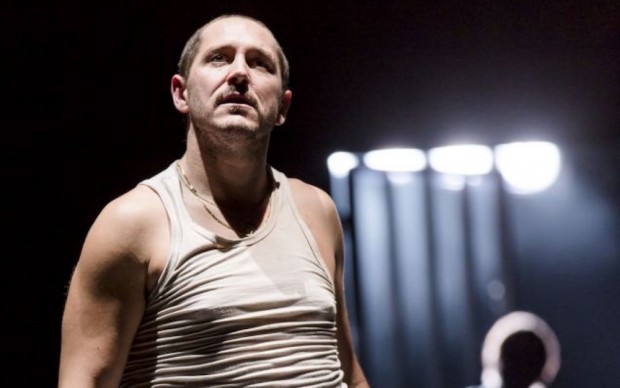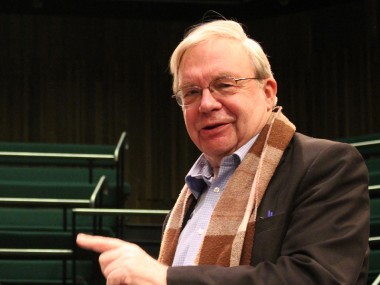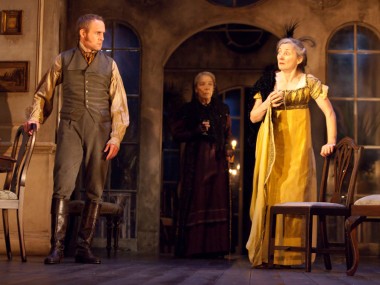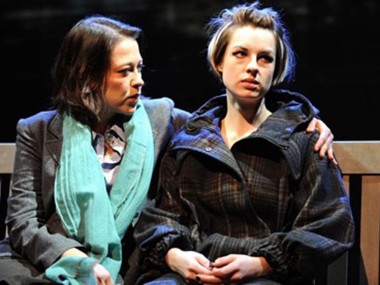Damned by Despair, National Theatre
Wednesday 10th October 2012

I’m becoming increasingly worried that large parts of what once was the usual theatre repertoire — Spanish Golden Age, Restoration Comedy, Victorian melodrama — are no longer seen on British stages. They have become strangers to new audiences, and to me. At first glance, the National Theatre’s revival of Tirso de Molina’s Damned by Despair looks promising. And I was really happy to see it in this flagship’s programme. Obviously, Nicholas Hytner is as worried as I am by the paucity of certain epochs on British stages.
This is a rare Spanish play from 1625, last seen in an excellent fringe production at the Gate by Stephen Daldry in 1991, and it explores the nature of religious belief. Two men fight it out: the hermit Paulo and the thug Enrico. By the end of this version’s two-hour running time, there has been a dramatic reversal. The religious Paulo is consumed by despair after becoming a blasphemous gangster while the cold and calculating killer Enrico finds redemption through the love of his father and God’s tender mercy.
On the way, the stage is littered with bodies as both men embark on murderous sprees, torturing, mutilating and killing all and sundry. In Frank McGuinness’s muscular translation, the story should be clear. After all, he is an Irishman who understands the Roman Catholic traditions of southern Europe perfectly and he is a major dramatist who writes with an impressive clarity and force. So why does the first half of the play feel as if it is a turgid trudge through mud?
Sadly, the fault must lie with Bijan Sheibani’s direction. At first, he sets the play in a wilderness that could be anywhere, and then in a Naples that is built up of the worst clichés of Little Englander prejudice. Someone should tell him that Pizzerias in the south of Italy are not full of mafia thugs in sunglasses, black gangstas and women dressed for the kill. Worst of all is the poor storytelling that makes it unclear exactly what is happening, and what is at stake.
It may be that the original play is not very dramatic, as religious orthodoxy seems to anticipate the ending of the story. But Sheibani’s mix of contemporary Tarantino images with old moral ideals never makes clear how seriously we should be taking the debate that is shown to us on stage. Still, some of the acting was good. Bertie Carvel is excellent as the villainous and then incarcerated Enrico and Sebastian Armesto’s Paulo embodies the pride of the zealot while also showing the corrosive effects of despair. And Rory Keenan is both amusing and wise as the Sancho Panza sidekick. But although the second half is better than the first, generally this is one to avoid.
© Aleks Sierz




